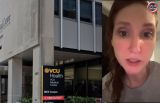In a recent survey conducted by U.S. News & World Report and The Harris Poll, alarming revelations about Americans' diminishing trust in higher education leaders have come to light. The results, presented on December 12 at an exclusive event titled "The Evolution of Leadership: Education" in New York, have raised concerns about the current state of faith in university leaders and their ability to prioritize the needs of students.

Key Findings
The survey, managed by Wendy Salomon, Managing Director of Corporate Strategy & Reputation at The Harris Poll, highlighted several key findings that underscore the crisis of faith in higher education leadership:
1. Failure to Prioritize Students
58% of Americans think that university leaders are contributing to students failing today. 53% of Gen Z and Millennials share this belief.
2. Developing Future Leaders
A mere 43% of Americans and 45% of Gen Z plus Millennials think that universities are succeeding when it comes to developing the nation's future leaders.
3. Leadership Examples
56% of Americans think that university leaders are not good examples of leaders for their students.
4. Trust in Leadership
Only 45% of Americans trust university leaders to do the right thing for their students. Interestingly, 57% of Gen Z and Millennials express trust in university leaders.
5. Trust Disparities among University Types
59% of Americans trust public university leaders. 55% of Americans trust private university leaders. 51% of Americans trust Ivy League university leaders.
Implications of the Trust Deficit
The findings of this survey raise critical questions about the role of higher education leaders in shaping the future of students and the institutions they serve. Eric Gertler, U.S. News executive chairman and CEO, emphasized the challenging environment that university leaders are currently navigating, with declining trust levels and decreasing enrollment numbers.
In a statement, Gertler acknowledged the difficulty of leadership, particularly in times of crisis, emphasizing the expectations and demands placed on those in positions of authority within academic institutions. This sentiment aligns with the broader societal context, where trust in various institutions, including academic ones, has been on the decline.
The Trust Landscape
The survey also delves into the nuanced landscape of trust among different types of universities. While a majority of Americans express trust in public university leaders (59%), the figures are lower for private universities (55%) and Ivy League institutions (51%). These variations suggest that perceptions of leadership effectiveness may be influenced by factors such as transparency, accessibility, and public accountability.
Leadership Learnings and Reflections
The exclusive event, "The Evolution of Leadership: Education," not only presented the survey findings but also aimed to share insights and learnings about effective leadership in academia. The two-hour forum included sessions on higher education policy, leading outside of the box, and the evolution of leadership in education.
Speakers such as James Kvaal, Under Secretary of the U.S. Department of Education; John B. King Jr., Chancellor of The State University of New York; Mildred Garcia, Chancellor of California State University; Jonathan Koppell, President of Montclair State University; and Ari Berman, President of Yeshiva University, contributed to the discussions on navigating the challenges faced by higher education leaders.
The crisis of faith in higher education leadership, as revealed by this survey, underscores the need for reflection and action within academic institutions. The evolving landscape of education, coupled with the challenges of our times, demands resilient and effective leadership. As stakeholders continue to grapple with declining trust and shifting perceptions, it becomes imperative for university leaders to engage in transparent communication, prioritize student needs, and adapt to the changing expectations of the communities they serve. The future of higher education hinges on the ability of leaders to rebuild trust, foster innovation, and lead with integrity in an ever-evolving educational landscape.
RELATED ARTICLE : America Needs To Regain Trust In Higher Education
© 2026 University Herald, All rights reserved. Do not reproduce without permission.








